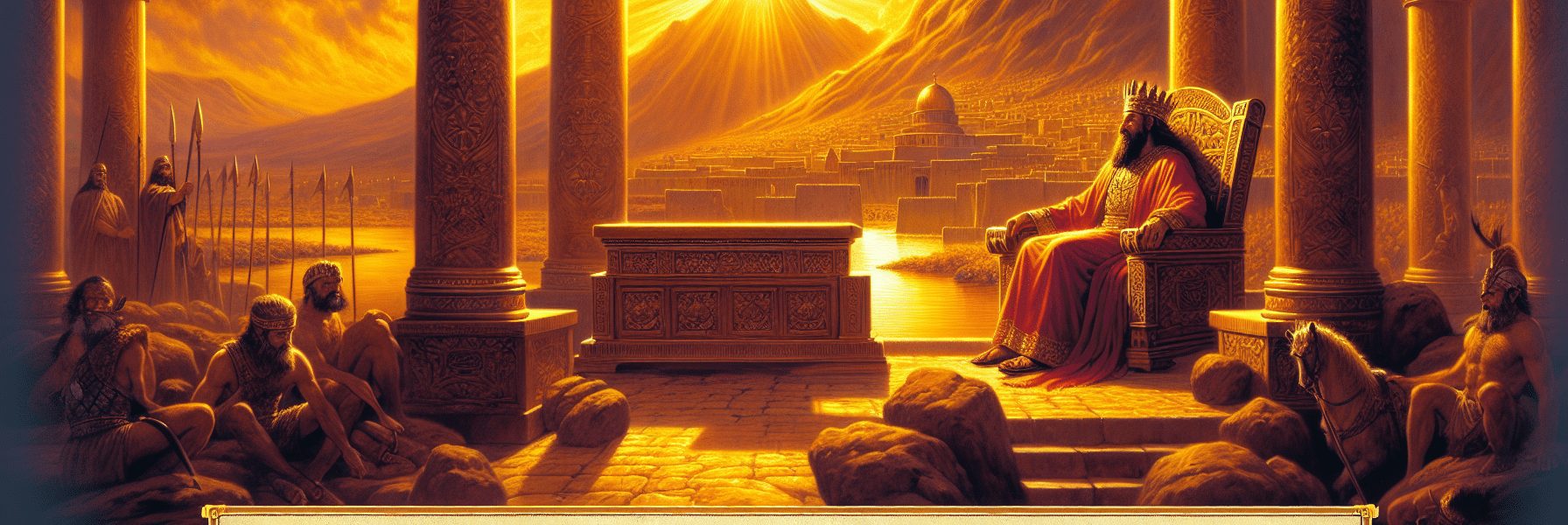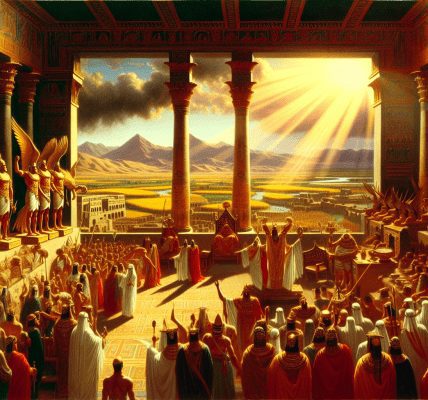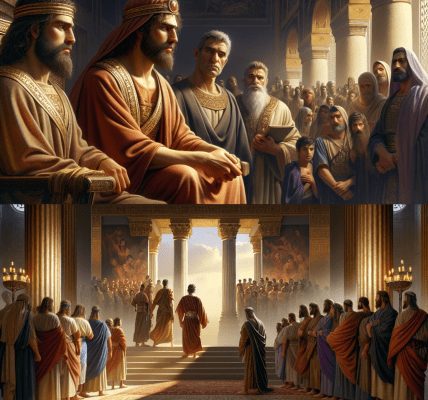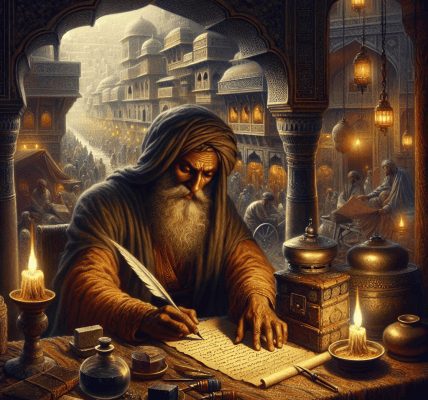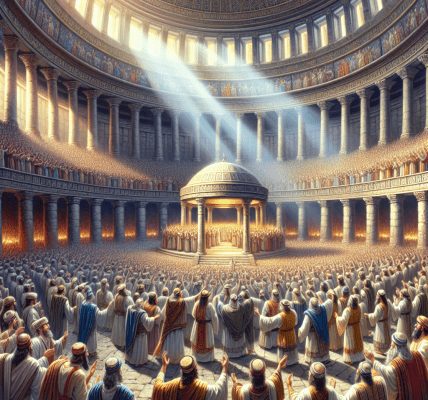**The Triumphs of King David**
The sun hung low over Jerusalem, casting golden rays upon the palace walls where King David sat in quiet contemplation. The Lord had given him rest from all his enemies, and yet, his heart burned with a holy zeal to establish the kingdom of Israel as a beacon of God’s glory. With the Ark of the Covenant now dwelling in the City of David, the king knew that the time had come to secure the borders of the land promised to Abraham, Isaac, and Jacob.
### **The Conquest of the Philistines**
Word had reached David that the Philistines, Israel’s ancient foes, had once again gathered their forces, seeking to reclaim the dominance they once held. These were the same warriors who had once taunted Israel with the giant Goliath, the same people who had oppressed the tribes for generations. But David, anointed by the prophet Samuel and strengthened by the Lord, would not allow them to rise again.
Rising from his throne, David summoned his mighty men—Joab, Abishai, and the rest of his seasoned warriors. With the blessing of the Lord upon him, he led his army into battle. The clash of swords and the cries of war echoed through the valleys as Israel’s forces pressed forward. The Philistines, though fierce, could not stand before the might of David’s men, for the Lord fought for Israel. City after city fell, and David took Metheg Ammah, a stronghold of Philistine power, stripping them of their control over the region. The Philistine lords bowed before David, their rebellion crushed, and their lands brought under the dominion of Israel.
### **The Defeat of Moab**
With the Philistines subdued, David turned his attention eastward to Moab, a nation that had once offered refuge to his ancestors but had later become hostile. The Moabites, descendants of Lot, had long wavered between alliance and enmity with Israel. Now, they stood as a threat, and David knew they must be dealt with.
Leading his army across the Jordan, David engaged the Moabite forces in a series of fierce battles. The Lord granted him victory, and the Moabite army was utterly defeated. To ensure lasting peace, David measured the captives with a length of rope, executing those who had led the rebellion while sparing those who submitted. The survivors became servants, paying tribute to Israel, and Moab was brought under David’s rule.
### **The Humiliation of Hadadezer**
News then came from the north of Hadadezer, king of Zobah, a powerful Aramean ruler who sought to expand his empire along the Euphrates. Hadadezer had mustered a vast army, boasting of his chariots and horsemen, believing none could stand against him. But David, trusting in the Lord rather than in the strength of men, marched his forces northward.
The battle was fierce, with Hadadezer’s forces clashing against Israel’s seasoned warriors. Yet, as the sun reached its zenith, the tide turned. David’s men, filled with divine courage, broke through the enemy lines. Hadadezer fled, but not before David captured a thousand of his chariots, seven thousand horsemen, and twenty thousand foot soldiers. To ensure the king could never rise again, David hamstrung all but a hundred of the chariot horses, rendering them useless for war.
As David pressed his victory, reinforcements came from Damascus, sent to aid Hadadezer. But the Lord delivered them into Israel’s hands as well. Twenty-two thousand Arameans fell that day, and the survivors bowed before David, paying tribute. The king placed garrisons throughout Aram, and the land became subject to Israel. Thus, the Lord gave David victory wherever he went.
### **The Dedication of Spoils**
With the wealth plundered from Hadadezer’s kingdom—gold shields, precious vessels, and vast treasures—David returned to Jerusalem in triumph. But he did not hoard the riches for himself. Instead, in an act of devotion, he dedicated all the spoils to the Lord, setting them apart for the future temple his son would build. Even the bronze taken from Hadadezer’s cities, Betah and Berothai, was consecrated for holy use.
### **The Submission of Edom**
Word of David’s victories spread like wildfire, reaching even the rugged mountains of Edom. The Edomites, descendants of Esau and long-time rivals of Israel, mustered their forces in the Valley of Salt, seeking to challenge David’s growing dominion. But once again, the Lord fought for His anointed.
Under the command of Joab and Abishai, Israel’s army marched into Edomite territory. The battle was fierce, but the Edomites could not withstand the might of David’s warriors. Eighteen thousand fell in a single day, and the survivors fled into the desert. David established garrisons throughout Edom, placing governors over the land, and all the Edomites became his servants.
### **The Establishment of Justice**
With his enemies subdued, David reigned over a vast and peaceful kingdom. He administered justice and righteousness to all his people, ruling not as a tyrant, but as a shepherd-king, mindful of the Lord’s commandments. His officials—Joab over the army, Jehoshaphat as recorder, Zadok and Ahimelech as priests, and Seraiah as secretary—served faithfully, ensuring the kingdom prospered.
And so, the Lord fulfilled His promise to David, giving him victory wherever he went. From the Philistines in the west to the Euphrates in the north, from Moab in the east to Edom in the south, the borders of Israel were secured. The nations trembled at the name of David, not because of his might, but because the Lord Almighty was with him.
And David, ever mindful of God’s favor, walked humbly before his Maker, knowing that every triumph was not by sword or spear, but by the hand of the Lord of Hosts.
